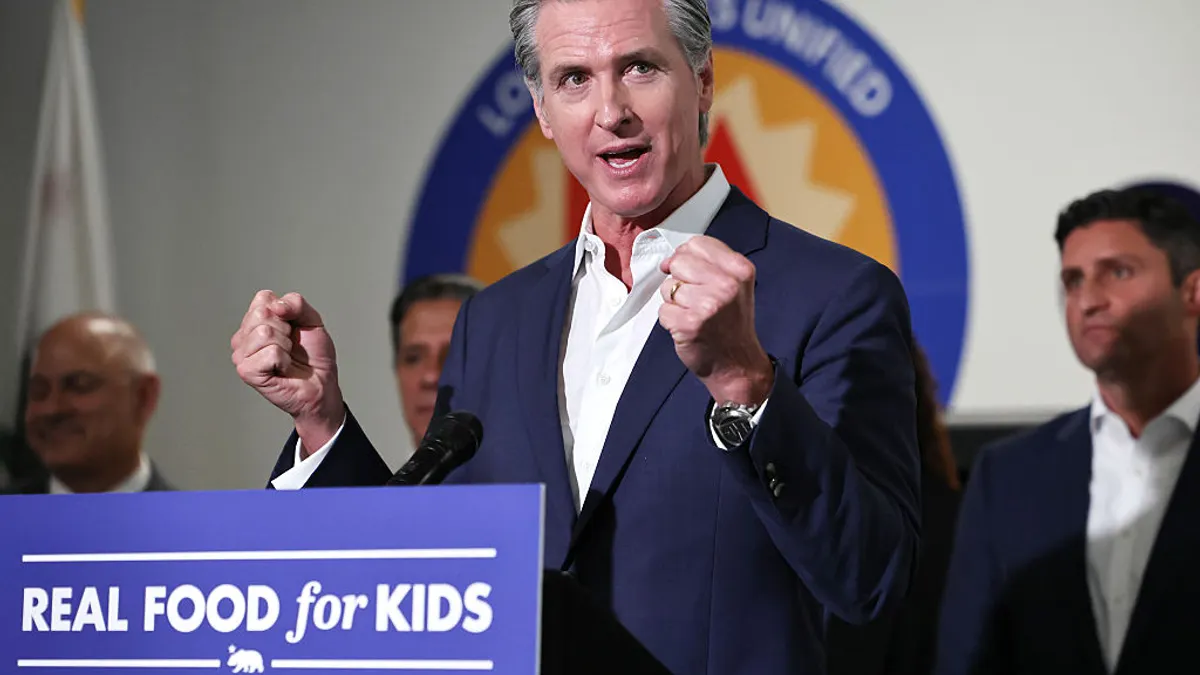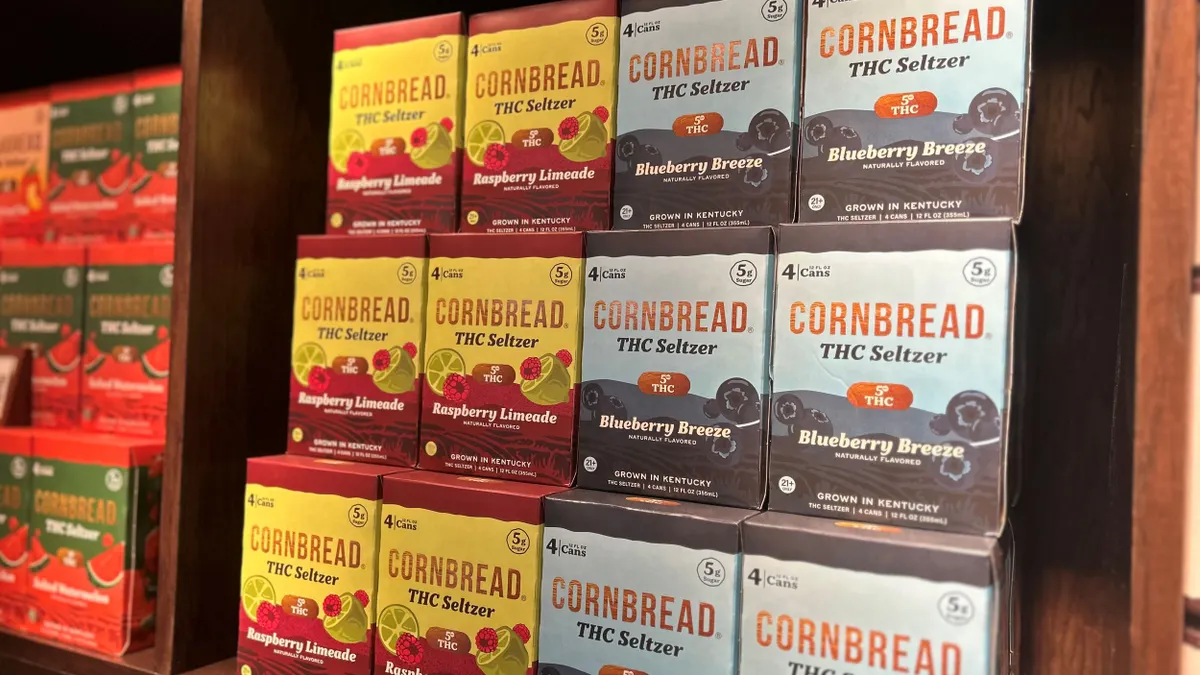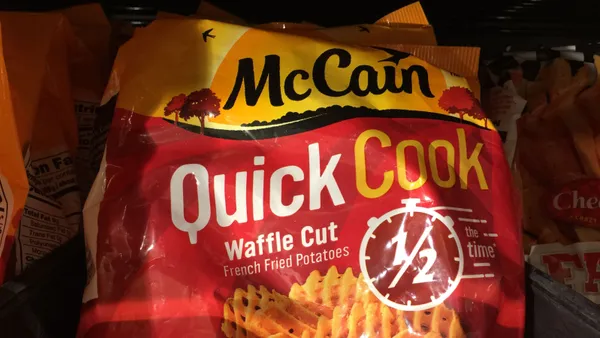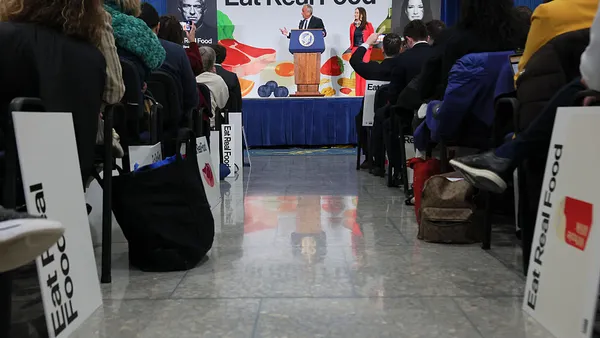Dive Brief:
- California will ban certain ultraprocessed foods from school meals as part of legislation that establishes the first legal definition of the term in the U.S.
- Gov. Gavin Newsom signed a law defining ultraprocessed foods as items containing at least one additive, or high amounts of saturated fat, sodium or added sugar. Foods containing sucralose or other sweeteners also qualify as ultraprocessed.
- The state’s ban only affects the "most concerning ultra-processed foods," which health officials will define by 2028. Schools then have until 2035 to phase out the restricted items.
Dive Insight:
California's legislation could provide a blueprint for other states to use to enact their own bans. More than 20 states including West Virginia, Florida and Utah have passed or proposed bans on dyes, additives and other ingredients commonly used in processed foods, part of the larger "Make America Healthy Again" movement that has found bipartisan support in legislatures across the country.
"California has taken a historic step toward protecting our children from harmful ultra-processed foods and chemical additives,” Jesse Gabriel, an assemblymember who sponsored the bill, said in a statement. “While Washington DC is paralyzed by inaction, California is once again leading the nation with a bipartisan, commonsense, science-based approach.”
In addition to banning ultraprocessed foods, the law prioritizes whole food products in school meals, stipulating that elementary schools can only offer fruit, vegetable, dairy protein or whole grain-rich food items as snacks.
Ultraprocessed foods typically refer to items made through industrial processing or food containing additives to make the product more appetizing. These foods are responsible for more than half of the calories in American diets and comprise 62% of calories consumed by children.
Health Secretary Robert F. Kennedy Jr. has called ultraprocessed foods "poison," saying they are among the primary causes of chronic illness in the U.S. The FDA has started working on its own definition of ultraprocessed foods, which could pave the way for future national regulation.
While ultraprocessed foods have been linked to Type 2 diabetes, obesity and other chronic health issues, not all are tied to negative health outcomes. That's made it difficult for regulators to properly define the term or institute bans.
Foods such as whole grain bread, yogurt, tofu and infant formula are considered ultraprocessed under some definitions. Packaged gluten-free and vegetarian items are also typically defined as ultraprocessed for their use of thickeners and stabilizers, Debra Topham, owner of food compliance firm Knowledge Bank, said in a LinkedIn post.
Schools will likely need to build new kitchens with refrigeration and storage to accommodate ingredient changes, with the cost of food served set to "increase exponentially," Topham said.
Health and nutrition groups lauded the California law, saying ultraprocessed foods are designed to be addictive and that the ban will help ensure children have more access to healthier food.
“Processed foods can have a place in a healthy diet, but Americans – especially children – consume too many ultra-processed foods, which contributes to increased rates of cancer, heart disease and diabetes,” Bernadette Del Chiaro, Environmental Working Group's senior vice president for California, said in a statement.















